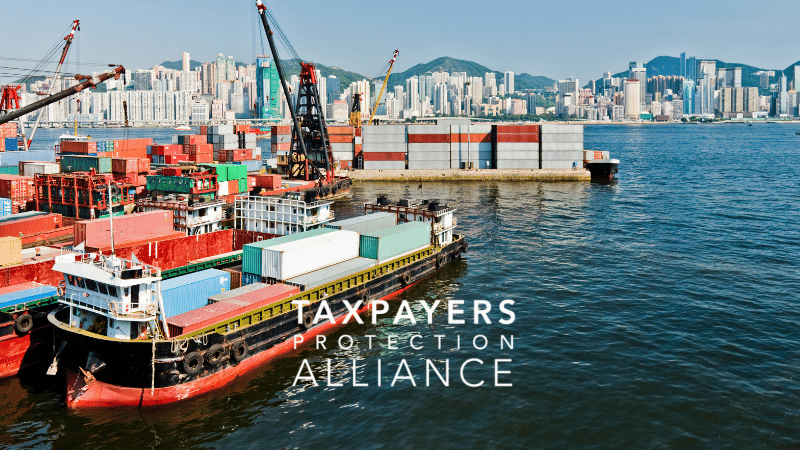
Summer Reading: Trade Policy
David B McGarry
August 15, 2025
It’s August. Temperatures are rising, as are the prices of tariffed goods. Although employees at the Taxpayers Protection Alliance (TPA) have the immense benefit of air conditioning while writing on the pressing public policy issues of the day, the latter issue poses a more intractable problem. Until the Trump administration backs away from its protectionism, consumers will continue to swelter under the hot sun of scorching tariff tantrums. Hopefully, TPA’s latest edition of Summer Reading will ensure that cooler heads prevail in these “trade wars.”
“[T]he U.S. has generated over $150B in tariff revenues within the past 6 months,” the White House account trumpeted on X. Presumably, the communications intern who plunked out that copy hoped that voters wouldn’t think much about the origin of that ten-zero sum. The fact is that money that enters the Treasury must come from somebody — or somebodies.
Those somebodies are American citizens. (If the reader is startled by the sound of a sudden deafening roar, fear not. That is the sound of haggard legions of economists shouting, “I told you so!”) According to a recent analysis from Goldman Sachs, Americans will absorb 85 percent of the costs of tariffs. For foreigners, the share of tariff cost burden is just 15 percent.
“Companies, not consumers, have been bearing the cost of tariffs,” stated the X account of Treasury Secretary Scott Bessent. This, too, is unmoored from fact. As Goldman Sachs notes, “companies will pass on 70% of the direct cost of tariffs to consumers through higher prices.” As a result, working class families must pay higher prices for tariffed goods and for goods composed of tariffed inputs. TPA’s chief regulatory analyst Juan Londono summarizes the devastation well in a column concerning the effects of tariffs on coffee prices: “Suddenly, the $17 bag of Colombian coffee could cost you a whopping $97.” He further notes, “With free trade, rare cheeses, exotic fruit, spices and high-grade meats stop becoming luxury goods consumed only by the wealthiest Americans and become more attainable to the average consumer. This is the undeniable byproduct of a low- and no-tariff environment that has enabled direct-to-consumer distribution systems to thrive.” Tariffs erode affordability, making consumers poorer.
As American consumers are forced to pay for these reckless policies, they will have only so much financial flexibility. If the costs of doing business, induced by tariffs, vault to 10, 20, or 30 percent higher than those of January 19, 2025, something must give. While most of the cost of tariffs carries over to consumers, businesses will inevitably bear some percentage of it.
Businesses do not simply soak up added taxes and regulatory costs without economizing. With new costs hanging as heavily in the air as Washington, D.C.’s August humidity, American firms hold back from investment and decline to hire as many workers as they otherwise would have. Reason’s Eric Boehm, a trade reporter par excellence, noted in April that “Trump’s tariffs will create about 100,000 new manufacturing jobs (a result of supply chains shifting to the U.S., as the president wants) but will destroy 500,000 other jobs in the process.” For every American worker who finds a job due to high-flying notions of industrial policy and vaunted economic statesmanship (sarcasm implied), five will suffer at least momentary unemployment. Behold, economist populism! Investment rates among tariff-affected firms — struggling to contend with rising costs of business and pervasive uncertainty — have also faltered. Behold, economic nationalism!
It bears noting that the new protectionist regime fails on many counts to achieve its stated ends. Consider the case of Red China, whose economic isolation many deem central to any robust American trade policy. China, once the darling of cost-conscious manufacturers, has centrally planned an economic regime unfriendly to businesses. Therefore, many firms operating in China began to prepare a migration to friendlier and less authoritarian nations in Asia. The market was, as they say, working.
Trump’s tariffs have accidentally — though not unpredictably — obstructed the progress of this market response. “Other countries that have lured businesses away from China, like Vietnam and Malaysia, have been assigned tariff rates of around 20%,” The Wall Street Journal reports. “It is uncertain whether those tariffs are low enough for companies to justify the disruption of moving supply chains from China.” In what can be described only as a self-inflicted wound, U.S. protectionism has blunted the appeal to businesses avoiding Chinese markets. Says The Journal:
“Instead of a smooth ‘China+1’ diversification, many are now in ‘China+None of the Above’ mode,” unsatisfied with any of their options, wrote Mark Morgan, president of global commercial operations at Kinaxis, a supply-chain company.
Liz Andarcia, co-founder of Rise Collective Consultants, a supply-chain consulting firm that has helped retailers shift production out of China, said some companies are hoping to wait a couple of weeks before making big moves.
The paper summed up the dynamic in the following headline: “Trump’s Tariffs Stymie India’s Bid to Steal Manufacturing From China.” Add the foolhardiness of the first Trump administration scorning the Trans-Pacific Partnership, a trade framework that promised to turn the attention of East Asian economies from Beijing to Washington. Scott Lincicome, the lord protector of free trade at the Cato Institute, labeled this abandonment “the most boneheaded U.S. policy move of the last decade.”
Tariffs suffer from a fundamental deficiency. For all the soaring encomiums to protectionism and the revitalization of American industry and manufacturing, Economics 101 — and the grungy experience supplied by history — makes clear that protectionist policies cannot achieve the ends protectionists hold dear. President Trump will encounter the same difficulties encountered by the mercantilists of the 18th century. So far as evidence is concerned, Adam Smith has bested Sir James Steuart. But politics only intermittently takes note of evidence.
Free trade enriches nations with the wisdom to embrace it. Protectionism impoverishes nations whose politicians refuse to remember what has come before.
